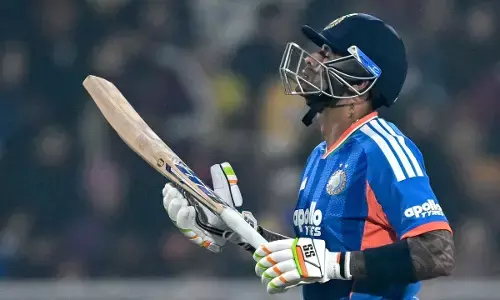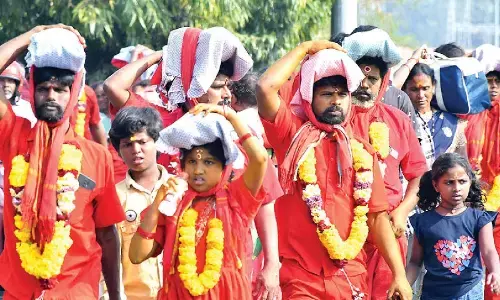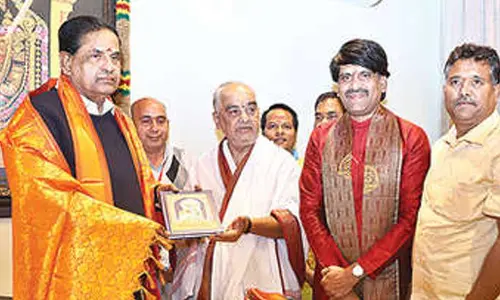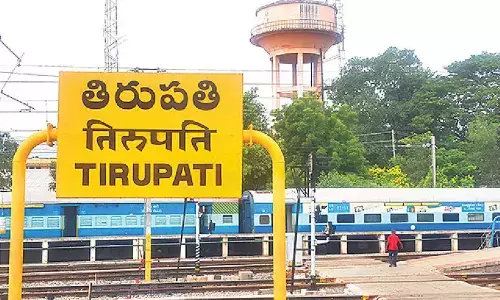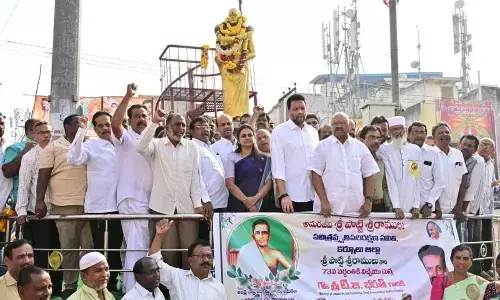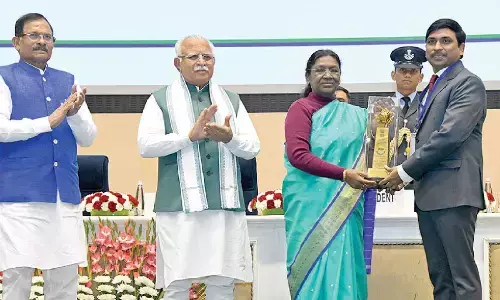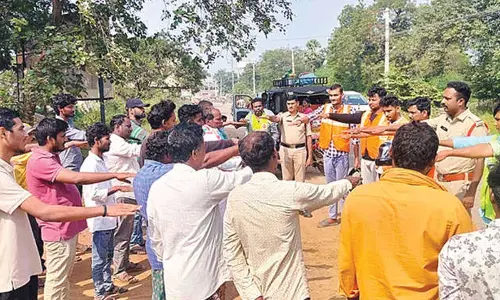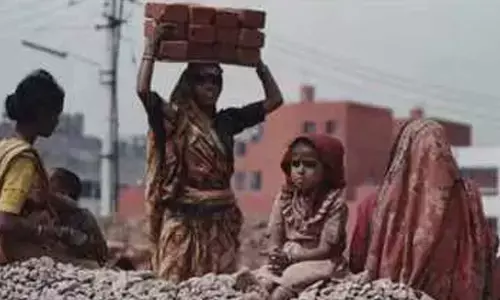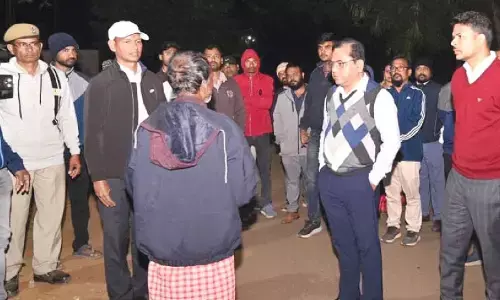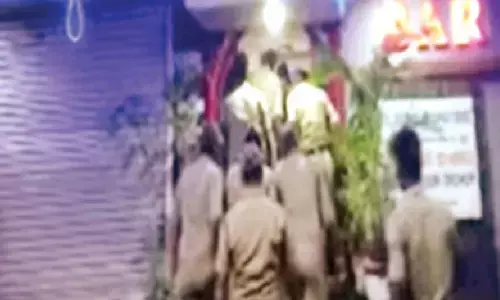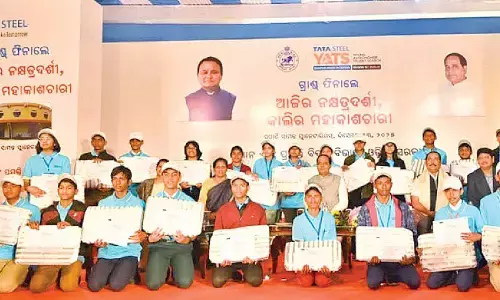IIT-H hosts international workshop on ‘Reframing the Biological Clock’
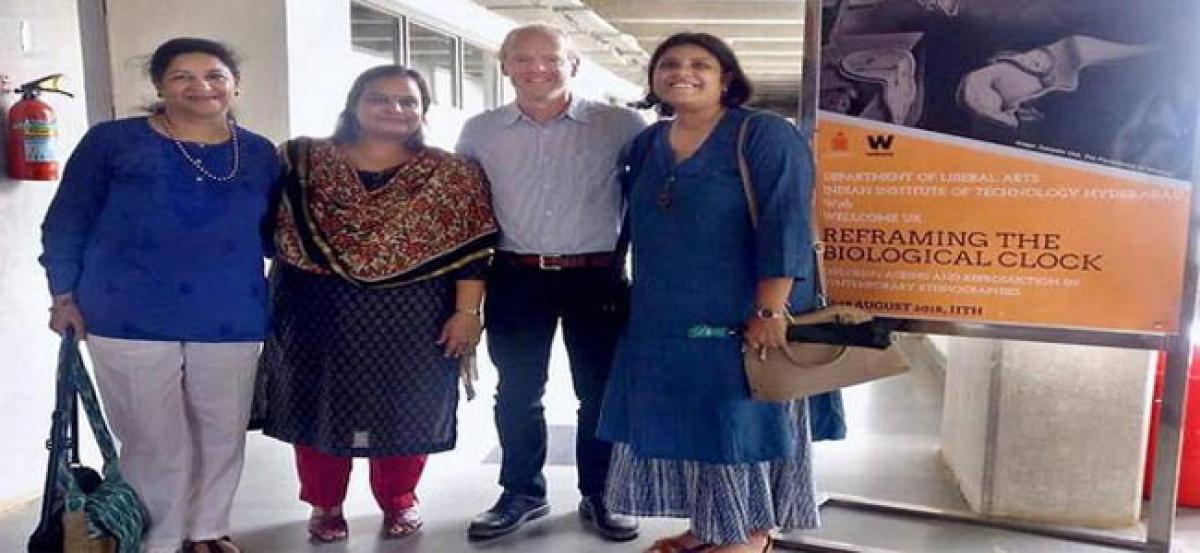
Indian Institute of TechnologyHyderabad, IItH, hosted an international workshop on Reframing the Biological Clock as part of a project funded under Wellcome Foundation UK Small Projects Grant for 2018
Hyderabad: Indian Institute of Technology-Hyderabad, (IIt-H), hosted an international workshop on ‘Reframing the Biological Clock’ as part of a project funded under Wellcome Foundation UK Small Projects Grant for 2018.
Researchers from the Institute are working on a pilot research looking at the how age and ageing are conceptualized in assisted reproduction. Principal Investigator Anindita Majumdar, Assistant Professor, Department of Liberal Arts, IIT Hyderabad, is researching ageing and IVF (In vitro fertilization) in rural North India where she interviewed coupled above a certain age regarding their experiences with IVF and birthing children.The outcomes from the field research were presented at ‘Remaking Reproduction’Conference at Reproductive Sociology Group, University of Cambridge, U.K., in June 2018, and European Conference on South Asian Studies, Paris, in July 2018.
The Department of Liberal Arts, IIT-H, coordinated the workshop, held on 17th and 18th August 2018 and brought together a set of scholars exploring the dynamics of ageing and reproduction through the lens of egg freezing, menopause, male infertility and sex ratio deficit. Addressing the workshop, the chief Guest Prof. Ravinder Kaur, Department of Humanities and Social Sciences, IIT Delhi, said,“This was a great conference, and extremely topical. Engaging with new reproductive technologies, this conference brought together papers that are looking at its relationship with kinship and the family. Some of the conversations here were futuristic, engaging with issues that are going to become relevant as we forge ahead, such as egg freezing. But, most importantly, this conference brought together voices from different parts of the world and from within India, giving us a comparative perspective on the issue of ageing and reproduction.”
Speaking later, Lucy van de Wiel, Reproductive Sociology Group, Department of Sociology, University of Cambridge, said,“I have met people from all over the world, with discussions on how reproduction is organized, and the kind of inequalities it carries in countries like Mexico, US, and the UK. I’m really glad that there is finally a conference on reproductive ageing. It is an important element and a major axis in social organization that has not been theorised as much as it should have been. It’s been a lovely experience, participating in such a well-organized conference.”
The workshop brought to the fore the ways in which technology is both detrimental and beneficial in imagining new reproductive futures for different cultures and communities across the world, including Mexico, Japan, US, UK, Denmark, India, Bangladesh, amongst others. Scholars from Denmark, US, UK, India, Japan, Germany and Bangladesh presented their work on the idea of the biological clock to understand how reproduction impacts deeper anxieties about the family, kin and nationhood.
Speaking later, Emily Wentzell, Associate Professor, Department of Anthropology, University of Iowa, said,“I am grateful to have been asked to come here. The areas of study and interest are particularly important when seen from a holistic perspective. This has enriched our individual thinking and our perspectives on reproduction and ageing.” This workshop brought together a diverse set of scholars working in the fields of reproductive medicine, epidemiology, assisted reproduction, anthropology, sociology and demography.
The question of the biological clock is becoming an important node to look at changing fertilities, and their large scale impact on demographic change across the world. At the workshop, discussions around egg freezing, erectile dysfunction, infertility, changing meaning and ages for menopause, sperm banking, changing paternal and maternal ages became important nodes of discussion and analysis.








